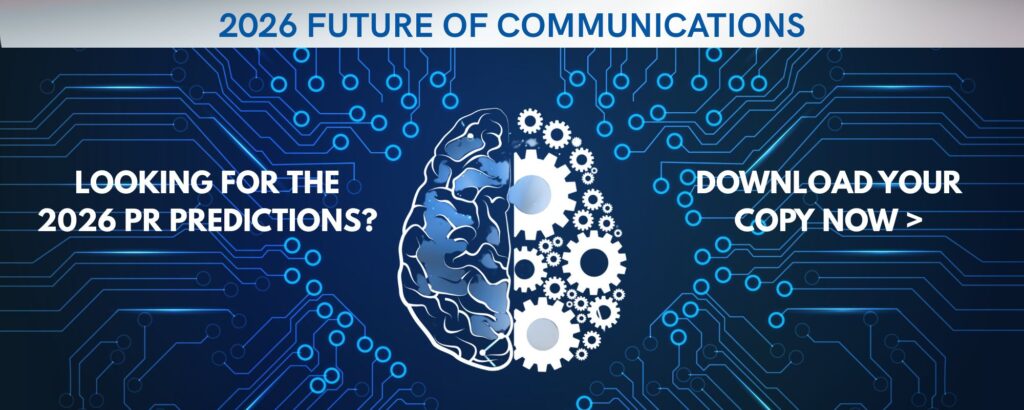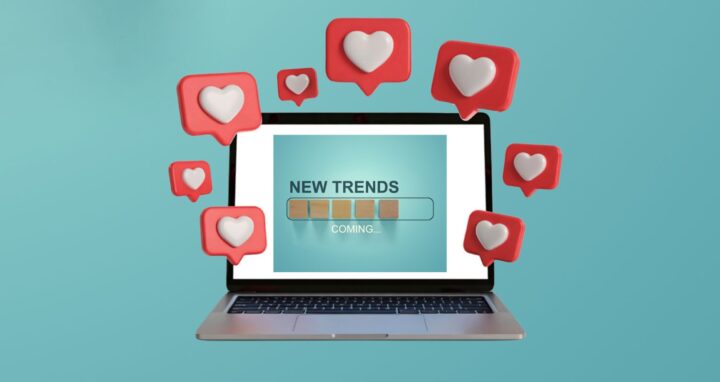Artificial Intelligence (AI) is the conversation of the moment. The impact of the rapidly growing technology has further driven concerns about cybersecurity, disinformation and privacy. Along with concerns are the opportunities for streamlining work and merging precision with creativity.
The use of data-driven decision making will extend past client work into the running of company and the management of financial analysis. The other considerations will be made for working in the Public Relations industry including the mix of employees and non-employees.
Predictions from Our Partners
Rise of Generative AI Tools
The rise of generative AI tools in content creation will revolutionize personalization, enabling brands to deliver hyper-targeted messaging to individual consumers. By 2025, AI is expected to be a critical tool in delivering custom content at scale, enhancing customer journeys, and building stronger connections.
Stefan Pollack, President | The Pollack Group – Los Angeles, California, USA
2025 PR Game Changers: AI Tools for Content Development and Data Analytics
In the coming year, we will see technology companies integrate AI and data analytics in more meaningful ways. PR teams will shift from experimenting with AI to using these tools for more precise audience targeting and content generation. These tools will enable PR professionals to expedite the delivery of tailored content across channels and improve the accuracy of reaching their customers and prospects. We will also see a major uptick in the integration of data analytics to inform more strategic decision-making for PR programs.
This will result in improved trend identification, audience segmentation, content optimization, sentiment analysis, and ultimately, integrated campaign measurement. Together, AI and data analytics will reshape how PR campaigns are planned and executed, offering greater precision and actionable insight.
Hally Wax, Senior Vice President | Raffetto Herman Strategic Communications – Seattle, Washington, USA
Brands Need New Ways to Engage Audiences
In the digital age, consumers are bombarded with advertisements, and ad-blocking software is becoming more common. As a result, brands need new ways to engage with their audiences. Consequently PR-rooted approaches to marketing will continue to grow in 2025, including:
- Company-hosted webinars that focus on the big issues and opportunities within their sectors and draw on the views of external figureheads as well as their own experts to increase B2B influence online
- Brand storytelling, rather than direct selling, bringing to life organisations and allowing interested outsiders to see inside the business, what’s it all about and the human side of its success
- Earned media through social proof – social media thrives on user-generated content and reviews. PR can harness this by encouraging customers to share positive experiences with the brand, turning them into advocates. This earned media functions as social proof, which is more credible and cost-effective than paid advertising.
- Personal branding via channels such as LinkedIn and podcast platforms which enables C-suite executives to become self-made ‘stars’ in their respective sectors based on their high value expertise and perspectives
Chris Lawrance, Managing Director | JBP Associates – London, England
AI will Revolutionize Communication, but Human Expertise will Remain Key to Authenticity
Artificial Intelligence (AI) is set to revolutionize communication across industries, becoming an essential tool for handling routine tasks in companies of all sectors. From automating customer service interactions to generating content at scale, AI will streamline many processes, making them more efficient. However, while AI can handle repetitive and data-driven functions, it cannot replace the critical role of communication and PR experts. These professionals will guide companies in crafting authentic, bias-free narratives that resonate with their audiences. Human expertise is essential to ensuring that messaging remains clear, accurate, and aligned with brand values, without falling into errors or unintended bias that AI might produce.
The future of AI in communication will depend on collaboration between technology and human insight, ensuring that businesses communicate effectively, ethically, and with the nuance needed to maintain trust and engagement in a rapidly evolving digital landscape.
Angélica Consiglio, CEO | PLANIN Comunicação – São Paulo, Brazil
AI Usage Transparency
Clients will start to demand officially for greater transparency on AI usage from agency partners. This may come in the form of indemnity clauses on AI usage in service agreements and contracts. Agencies will also start to put in indemnity clauses on misuse of AI into HR contracts.
Wong Voal Voal, Managing Partner | IN.FOM – Singapore, Singapore
Empowering People Leaders: The Key to Organisational Success
Next year, people-leader communication will be a non-negotiable for organisational success. As workplaces become more complex and fast-paced, effective communication is critical in fostering employee engagement, retention, and overall performance. People leaders will be expected to go beyond simply relaying information — they must create environments where trust, clarity, and empowerment thrive. Organisations will be investing in leadership development programmes that emphasise communication skills like clear messaging. Structured communication processes, supported by content calendars and transparent guidelines, will help leaders align team objectives with business goals.
Sandy Boundy, Director of Strategy & Insight | Springboard Communications – Cork, Ireland
Brands will have to Rethink Their Approach to Customer Engagement.
In 2025, it will be critical for brands to move from customer transactions to customer experiences. In other words, transactional relationships where the goal is to sell an item will be the death of a brand—or at least the exit of the CEO, as in the case of John Donahue from Nike in 2024. His hubris about Nike led him to the decision to change what is an experiential purchase to a transactional one, which ultimately led to the decline of Nike sales.
In contrast, brands that embrace a customer-experiential relationship will thrive. This will require brands to make their customers part of their marketing conversation and operations.
Roger Hurni, Managing Partner and Behavior Strategist | Off Madison Ave – Tempe, Arizona, USA
A Shift Toward Quality Over Quantity
As the media landscape evolves, client expectations are increasingly focused on the quality of communications and their outcomes, rather than traditional metrics centered on quantity. Communication effectiveness is now being measured by targeted media interactions, strategic placements, and audience engagement.
The focus is shifting from questions like “How many clippings did we get?” to “What opportunities did it create?” This trend highlights the growing importance of outcome-driven communication and underscores the value of communication experts who can provide meaningful advice and strategic guidance.
Natalia Cygan, PR Manager | SAROTA PR – Kraków Poland





